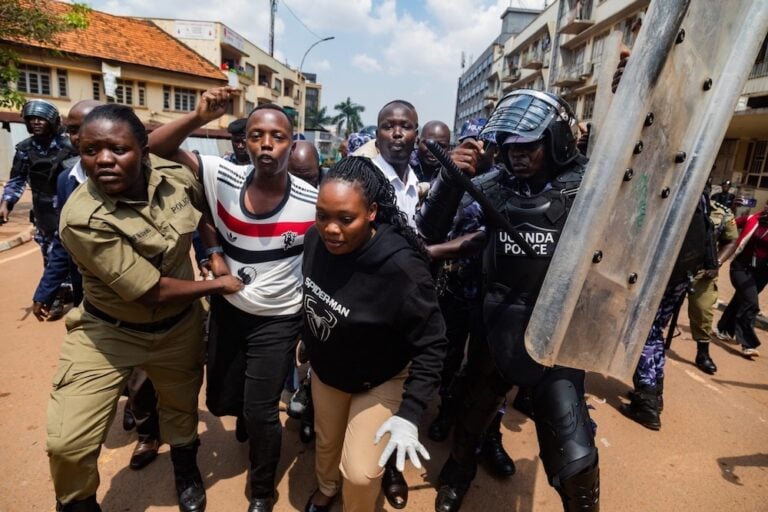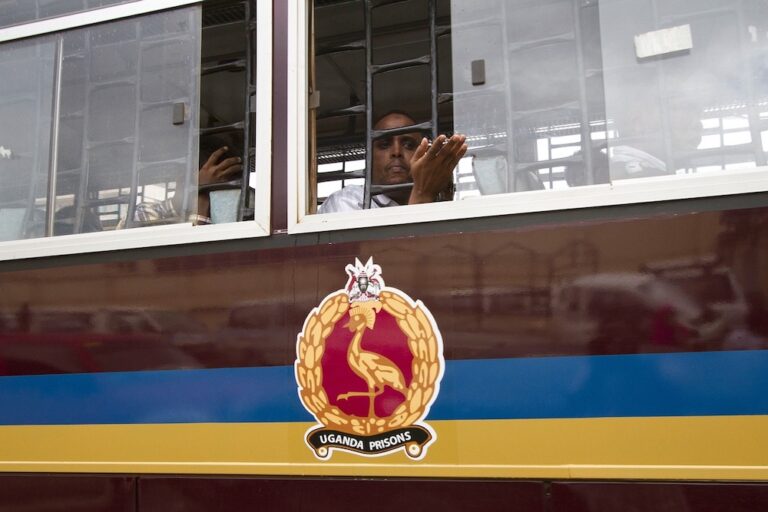"They did not want us to cover the arrest of Besigye, but when I saw Besigye’s car approaching the police blockade, I moved closer. But the police were pushing me telling me not to take pictures. When I took the pictures, a plain-clothed man pepper sprayed me in the eyes."
This statement was originally published on hrnjuganda.org on 22 February 2016.
ON 22 February 2016, photojournalist Isaac Kasamani of AFP – an international news agency – was pepper sprayed by police while taking pictures of police arresting former Forum for Democratic Change (FDC) Presidential Candidate Dr. Kizza Besigye at his residence in Wakiso District. Another journalist, Abubaker Lubowa, survived narrowly, while other journalists were blocked from accessing the news scene.
Since 20 February 2016, police under the command of the Division Police Commander (DPC) of Kasangati Police Station James Kawalya have barred journalists from accessing Kizza Besigye’s home and taking pictures of events unfolding.
“They did not want us to cover the arrest of Besigye, but when I saw Besigye’s car approaching the police blockade, I moved closer. But the police were pushing me telling me not to take pictures. When I took the pictures, a plain-clothed man pepper sprayed me in the eyes. There was also a police officer in civilian attire taking our photographs,” Kasamani told HRNJ-Uganda.
Abu Baker Luboowa of the Daily Monitor – who was also taking pictures with Kasamani – told HRNJ-Uganda that “they were targeting both of us but I narrowly survived the pepper spray. The DPC Kawalya handed the plain-clothed man the pepper spray and ordered him to work on us as we photographed Besigye.”
When contacted by HRNJ-Uganda, Kawalya said “I cannot tell who did it but I told journalists not to come close to the blockade. When they saw Besigye coming, they disobeyed our orders.”
“Police has, on several occasions, targeted journalists covering the opposition politicians without any justification. It was unreasonable for the police to pepper spray a journalist, since he was not a threat by doing his work. Blocking journalists from accessing news scenes is unjustified, intended to deny Ugandans their right to know what is happening in their country. Police should take action against perpetrators of violence against journalists,” said Robert Ssempala the HRNJ-Uganda National Coordinator.


